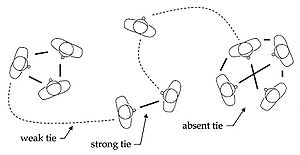An insightful essay by Clay Shirky on trust, Web, algorithms, authority. Clay Shirky is able to put in few clear words what I’ve been trying to tell for years.
Khotyn is a small town in Moldova. That is a piece of information about Eastern European geography, and one that could be right or could be wrong. You’ve probably never heard of Khotyn, so you have to decide if you’re going to take my word for it. (The “it” you’d be taking my word for is your belief that Khotyn is a town in Moldova.)
Do you trust me? You don’t have much to go on, and you’d probably fall back on social judgement — do other people vouch for my knowledge of European geography and my likelihood to tell the truth? Some of these social judgments might be informal — do other people seem to trust me? — while others might be formal — do I have certification from an institution that will vouch for my knowledge of Eastern Europe? These groups would in turn have to seem trustworthy for you to accept their judgment of me. (It’s turtles all the way down.)
An authoritative source isn’t just a source you trust; it’s a source you and other members of your reference group trust together.
authority is a social agreement, not a culturally independent fact.
Thanks to the post, I also came to know about “it’s turtles all the way down” (from Wikipedia)
A well-known scientist (some say it was Bertrand Russell) once gave a public lecture on astronomy. He described how the earth orbits around the sun and how the sun, in turn, orbits around the center of a vast collection of stars called our galaxy. At the end of the lecture, a little old lady at the back of the room got up and said: “What you have told us is rubbish. The world is really a flat plate supported on the back of a giant tortoise.” The scientist gave a superior smile before replying, “What is the tortoise standing on?” “You’re very clever, young man, very clever”, said the old lady. “But it’s turtles all the way down!”
And you are reading this … because you trust me, I trust Wikipedia, you trust Wikipedia, you trust the fact if I told you that this comes from Wikipedia, you trust this comes from Wikipedia servers, you trust Wikipedia servers don’t change the content of their pages randomly or adhocly, you trust that the link I placed there is a real link to Wikipedia, you trust that what you see on the screen is the result of computers running as they should, you trust that your web browser works the way you think it works in showing you the content from my blog, you trust that the Internet routers long the way did not inserted additional information, …

![Reblog this post [with Zemanta]](https://i2.wp.com/img.zemanta.com/reblog_e.png?w=625)




